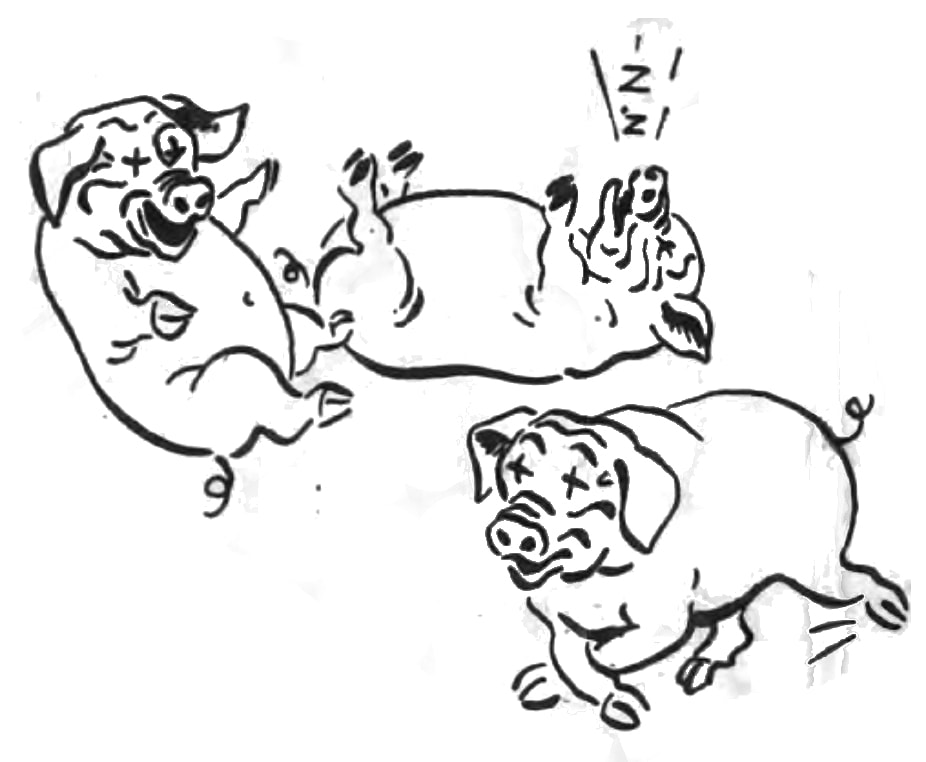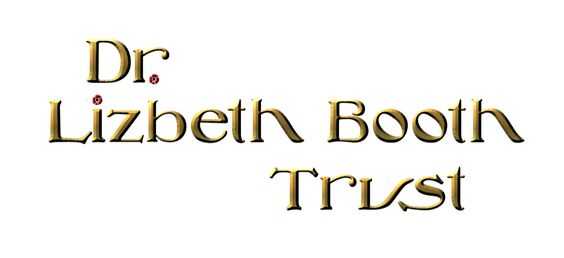Like most taverns, Ezra kept a large stock of wine and liquors on hand. The many barrels of whiskey and brandy were stored in his basement which due to the slope of the land opened on the rear into a sort of low swale. Ezra’s conscience had never bothered in the least about selling liquor. Tavern keepers were popular and greatly respected in most cases.
About the year of 1825, however, there was started more or less simultaneously all over the east a great temperance movement. In 1825 a Temperance lecturer came to Warren’s Corners. Atop a large stump where the Methodist Church now stands, he dwelt on the evils resulting from the habit of drinking liquor and even went so far as to paint a verbal picture of tavern keepers sizzling in the lower regions.
All this made a deep impression on Ezra Warren. During the night he dreamed that the Lord appeared before him and commanded him to cease selling liquor and to begin preaching the gospel and the evils of intemperance. Bright and early the next morning Ezra went to the basement door and he rolled barrel after barrel of whiskey and cherry brandy out into the gully. When the very last barrel was out he began knocking in the heads of the barrels and soon there were great pools of whiskey and cherry brandy with cherries floating in it.
Now like all taverns along the Ridge, meals were served here to the weary travelers who arrived by stagecoach, on horseback or whole families in covered wagon. The scraps of food from the table were thrown out the rear of the kitchen into the swale. The only garbage collectors in those days were hogs which by law were at that time “Free commoners” which meant they were allowed to run at large.
Naturally all hogs anywhere near Warrens Corners came to the rear of Ezra Warren’s Tavern for the tidbits tossed out the windows. On this particular morning when Ezra was obeying the command of the Lord and spilling out all of his liquor the usual number of hogs were on hand. At first, they sniffed the brandy, then ate the cherries. A real treat this time they must have thought. Next, they began to drink the brandy and whiskey from the pools.
Ezra began to overhear his patrons,
“Farmer Dowdy’s pig is trying to jump over the road fence!”
“Why the pigs are chewing each other’s ears and romping like kittens.”
“They’re eating the buttercups!”
“They’re chasing butterflies!”
Ezra finally went to have a look, and saw that this was al too true. Squealing and “oinking” as they never had before, the swine were rooting in the gully. Most appeared totally stricken, stretched out, their tails as straight as sting.
In those days every owner of domestic animals that were “free commanders” had to have one ear of each animal perforated or slit with his own “earmark.” These were of many different shapes and were registered with the Town Clerk in what was designated “The Book of Strays.”
Ezra recognized the “earmarks” of the drunken hogs and since they showed no signs of “sobering up,” Ezra then saddled up a horse or sent a messenger depending on whose recounting you read and rode to notify all of the hog owners. His shouted greeting at each whistle stop was:
“Come and get your drunken pigs!”
It meant two trips for most of the owners, because they had to return home and get teams of oxen and mud boats for by that time the pigs were out cold.
Neighborhood farmers who had prodded their swine in vain, now faced the ex=cavalryman, leaning on their pitchforks.
“Kind sirs,” the latter began, feeling their silent reproach as he climbed a stump.
“In these innocent creatures some of you may see yourselves. Believe me, they have consumed the best and last from Warren’s taproom. They don’t know any better but you as men, do. Feel only compassion for your hogs. They’re drunk.”
Ezra Warren thereafter traveled from place to place preaching the word of God and the evils of intemperance. He never became an ordained minister, because he refused to be baptized; saying that he had been “Baptized by the Holy Spirit,” but he undoubtedly had a tremendous influence in aiding the Temperance Movement. He afterwards was called “Father Warren.”
Soon after he gave up the tavern business, Ezra modified the tavern into appear more “homely.” He described it as “rounding off” the building; however, the exact nature of these modifications remains unclear. He then moved on to become a lay minister, traveling to perform baptisms, marriages and memorial services in churches, homes and fields around the county.
Warren subsequently donated land just east of the schoolhouse and one hundred dollars to the Methodist Society, which constructed a small wooden church on the site.
About the year of 1825, however, there was started more or less simultaneously all over the east a great temperance movement. In 1825 a Temperance lecturer came to Warren’s Corners. Atop a large stump where the Methodist Church now stands, he dwelt on the evils resulting from the habit of drinking liquor and even went so far as to paint a verbal picture of tavern keepers sizzling in the lower regions.
All this made a deep impression on Ezra Warren. During the night he dreamed that the Lord appeared before him and commanded him to cease selling liquor and to begin preaching the gospel and the evils of intemperance. Bright and early the next morning Ezra went to the basement door and he rolled barrel after barrel of whiskey and cherry brandy out into the gully. When the very last barrel was out he began knocking in the heads of the barrels and soon there were great pools of whiskey and cherry brandy with cherries floating in it.
Now like all taverns along the Ridge, meals were served here to the weary travelers who arrived by stagecoach, on horseback or whole families in covered wagon. The scraps of food from the table were thrown out the rear of the kitchen into the swale. The only garbage collectors in those days were hogs which by law were at that time “Free commoners” which meant they were allowed to run at large.
Naturally all hogs anywhere near Warrens Corners came to the rear of Ezra Warren’s Tavern for the tidbits tossed out the windows. On this particular morning when Ezra was obeying the command of the Lord and spilling out all of his liquor the usual number of hogs were on hand. At first, they sniffed the brandy, then ate the cherries. A real treat this time they must have thought. Next, they began to drink the brandy and whiskey from the pools.
Ezra began to overhear his patrons,
“Farmer Dowdy’s pig is trying to jump over the road fence!”
“Why the pigs are chewing each other’s ears and romping like kittens.”
“They’re eating the buttercups!”
“They’re chasing butterflies!”
Ezra finally went to have a look, and saw that this was al too true. Squealing and “oinking” as they never had before, the swine were rooting in the gully. Most appeared totally stricken, stretched out, their tails as straight as sting.
In those days every owner of domestic animals that were “free commanders” had to have one ear of each animal perforated or slit with his own “earmark.” These were of many different shapes and were registered with the Town Clerk in what was designated “The Book of Strays.”
Ezra recognized the “earmarks” of the drunken hogs and since they showed no signs of “sobering up,” Ezra then saddled up a horse or sent a messenger depending on whose recounting you read and rode to notify all of the hog owners. His shouted greeting at each whistle stop was:
“Come and get your drunken pigs!”
It meant two trips for most of the owners, because they had to return home and get teams of oxen and mud boats for by that time the pigs were out cold.
Neighborhood farmers who had prodded their swine in vain, now faced the ex=cavalryman, leaning on their pitchforks.
“Kind sirs,” the latter began, feeling their silent reproach as he climbed a stump.
“In these innocent creatures some of you may see yourselves. Believe me, they have consumed the best and last from Warren’s taproom. They don’t know any better but you as men, do. Feel only compassion for your hogs. They’re drunk.”
Ezra Warren thereafter traveled from place to place preaching the word of God and the evils of intemperance. He never became an ordained minister, because he refused to be baptized; saying that he had been “Baptized by the Holy Spirit,” but he undoubtedly had a tremendous influence in aiding the Temperance Movement. He afterwards was called “Father Warren.”
Soon after he gave up the tavern business, Ezra modified the tavern into appear more “homely.” He described it as “rounding off” the building; however, the exact nature of these modifications remains unclear. He then moved on to become a lay minister, traveling to perform baptisms, marriages and memorial services in churches, homes and fields around the county.
Warren subsequently donated land just east of the schoolhouse and one hundred dollars to the Methodist Society, which constructed a small wooden church on the site.







